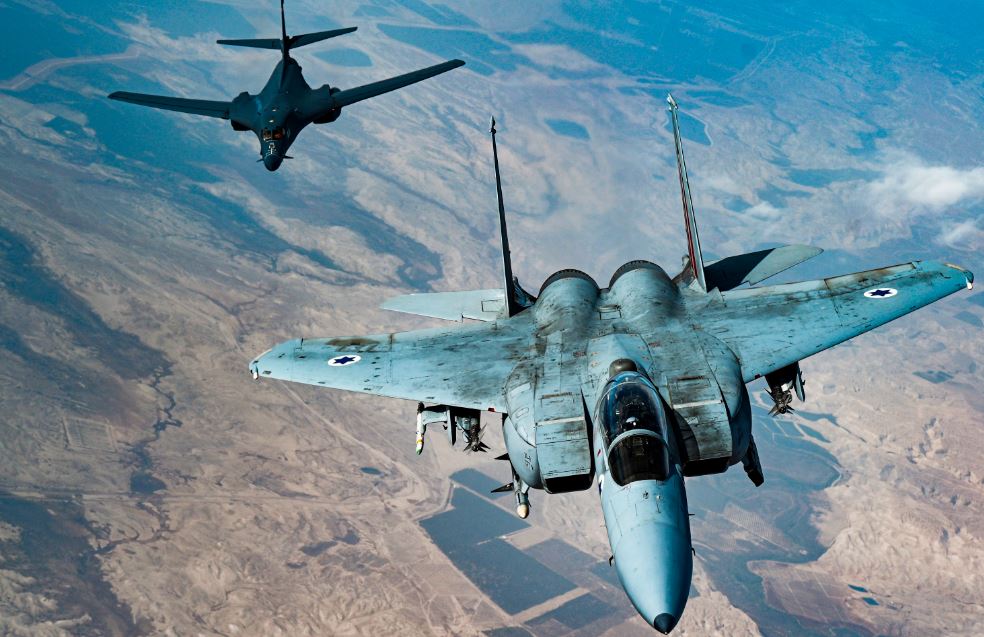A U.S. delegation led by President Biden’s Iran envoy, Robert Malley, is in the middle of a 10-day, four-country visit to consult with key Middle Eastern allies.
The trip comes just ahead of the next round of talks in Vienna, scheduled for Nov. 29, to revive the 2015 nuclear accord between the regime in Iran and world powers. The tour and its timing indicate how concerned the Biden administration is about the upcoming talks — and the grim possibilities it faces if a new deal isn’t reached soon.
But in some quarters that eagerness to break the impasse is being conflated with exaggerated claims about the menace Iran actually poses. A senior official told me the most likely alternative to an accord is a war. This is something the United States doesn’t want but that Iranian intransigence and Israeli alarmism are inching us closer toward.
While the administration is eager to push for a diplomatic solution, Israel says it’s preparing for a fight. Last week, Israeli army chief of staff Lt. Gen. Aviv Kohavi said that his country’s forces were “speeding up the operational plans and readiness for dealing with Iran and the nuclear military threat.” A threat, it must be said, that does not currently exist.
In response, Amir Ali Hajizadeh, commander of the Islamic Revolutionary Guard Corps Aerospace Force, said Israel “may be able to start a battle, but it is the Islamic Republic that will end it.”
The only way that would happen, though, would be with Iranian forces waving a white flag.
Iran cannot mount a credible defense against the United States or its allies, even if it were to reach the so-called nuclear breakout capability. And though the assertion is repeated often, Israel does not consider the Iranian regime a real threat to its existence. With its conventional military might, a large yet undeclared nuclear weapons arsenal, technological superiority over all other regional countries and the backing of the United States, how could it?
In fact, Israel is already engaged in a covert war against Iran that it has been escalating, with little response, for years. A string of assassinations of Iranian nuclear scientists dating back to 2010, culminating with a highly sophisticated ambush of the program’s chief, Mohsen Fakhrizadeh, demonstrated Israel’s seriousness — and Tehran’s inability to mount a meaningful retaliation.
Cyberattacks on Iranian nuclear facilities and a major Persian Gulf port — and most recently, a disruption of Iran’s gas stations widely believed to be carried out by Israel — demonstrate Israel’s superior mastery of technology. Iran, meanwhile, is unable to pull off mayhem on that scale, settling for targeted extraterritorial abductions and assassinations and occasional drone attacks against its adversaries.
The real threat of the Iranian regime remains aimed, as it has always been, at the people of Iran and its closest neighbors. The schisms between the Iranian public and the state, and between Tehran and regional allies, are expanding. The Iranian leadership’s inability to defend against attacks and satisfy the country’s population can’t be ignored. In fact, this should be at the heart of any new deal.
Viewed through that lens, the maximalist demands set forth by Iranian officials — Iran’s lead nuclear negotiator claimed last week that the new talks will focus solely on removing sanctions on the country’s battered economy — should not be mistaken as a sign of a strengthened position. And Iran’s continued flouting of international norms further undermines its case to be taken seriously by the international community.
The hyperbole on both sides muddies the reality that Iran is a minor-league power at best. To be sure, it has destructive potential, but its hold on power both within its own borders and regionally is tenuous and on the decline.
Israeli and Iranian officials have engaged in this sort of back-and-forth for years, yet the resurgence of this kind of unchecked bombast, especially from Iranian authorities, is worrisome. The relative pragmatism by Iranian officials that led to the original nuclear deal is gone, and Tehran’s rhetoric and actions have reverted to the obstinate stances of the past.
The 2015 deal didn’t change the fundamental nature of Iran’s political system, but it struck a blow to the worldview of the regime’s most insular forces. Now, the myth that Iran would somehow become more powerful through being sanctioned by gaining self-sufficiency has been resurrected by ideological purists in the regime who have been re-emboldened since Ebrahim Raisi was elected president in June. If the regime continues down a path of belligerence, an Israeli attack will become even more likely.
Former diplomat Dennis Ross recently asserted in Foreign Policy magazine that the Biden administration must reestablish fear in Iran’s leaders that a U.S. military threat is credible if the regime continues to grow its nuclear program.
I would argue instead that the United States should let go of its fear of Iran, a country whose military capabilities and overall resources are so far behind those of America and its allies that it is laughable. In the upcoming talks, the United States should negotiate from that position of strength.


